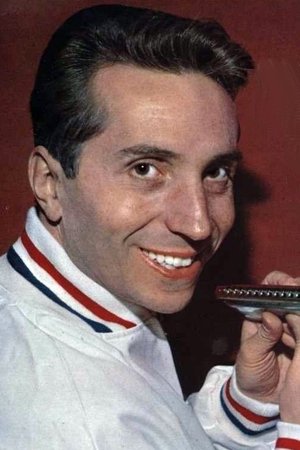Albert Raisner (1922-2011)
Alias:
Albert Rufenach
Birthplace:
Apolda, Germany
Born:
September 30, 1922
Died:
January 1, 2011
Albert Raisner (30 September 1922 in Apolda, Germany – 1 January 2011 in Boulogne-Billancourt, France) was a French harmonica player, founder of the award-winning Trio Raisner and a TV and radio host and producer. He was the host of the hit show "Age Tendre et Tetes de Bois", which aired from 1961 to 1967 and featured world-renowned artists including The Beatles, Elvis Presley, Stevie Wonder, Isaac Hayes and French singers Johnny Hallyday and Claude Francois. He is regarded as an icon and a pioneer of French television, sometimes compared to Ed Sullivan, and was knighted by the French president in 1977. Born in the Thuringian town Apolda of a French father and a German mother, Albert Raisner arrived in Paris at age 7. His socially modest family lived in Montmartre in the 18th arrondissement of the capital in a 400 square feet apartment. He had two brothers, one older, one younger. His father was a sales representative and music enthusiast, who taught him violin, piano, trumpet, guitar and clarinet early on. He received classical musical training; nevertheless, harmonica was his favorite instrument. He was a member of the boy scouts, whom he considered his first audience when he played during vigils around camp fire. He refined his talent with musician Charles Rodriguez, a gypsy guitarist, violinist, man band and French harmonica pioneer. Until 1939, he participated in the activities of Studio Rodriguez (officially 'French Association for Musical Expansion') and became known in the entertainment world. He joined legendary gypsy guitarist Django Reinhardt on tour. Raisner would also participate in the circus world, with "Cirque Pinder", where he learned to perform on the trapeze. A teenager during the Second World War, he experienced food rationing and the bombing of his street. He joined the Resistance in Beaulieu-sur-Dordogne in Corrèze in Free France. During the war, Raisner joined the semi-clandestine jazz underworld and created the Club for Harmonica ('CHARM'). Raisner studied at Colbert High School before spending a year at Ecole Normale d'Auteuil, both in Paris, earning a PhD in linguistics. With Sirio Rossi and Adrien Belin, Albert Raisner formed the Trio Raisner, which would become a regular feature of radio and TV programs. The trio was recruited to play during shows for the American Army in Europe. Trio Raisner earned large-scale success upon D-Day and at Liberation with the American Special Service (an effort to provide entertainment for US-soldiers in Europe) in Frankfurt, where he shared scene and airtime with Frank Sinatra, Louis Armstrong, Marlene Dietrich, Elvis Presley, Ella Fitzgerald and Duke Ellington. Thereafter, the Trio Raisner performed numerous, highly successful shows and tours in France. More than solely musicians, members of the trio were showmen, musical scene pioneers, mixing harmonica, songs, dances and humor. Soon after, the trio toured outside of France including Germany, Great Britain, Italy and Israel. It was featured numerous times on international radio channels and in movies. Albert Raisner composing songs for the trio, and in 1952 the Trio Raisner received the Grand Prix du Disque (Best Song of the Year award) for 'Le Canari'. ... Source: Article "Albert Raisner" from Wikipedia in English, licensed under CC-BY-SA 3.0.





